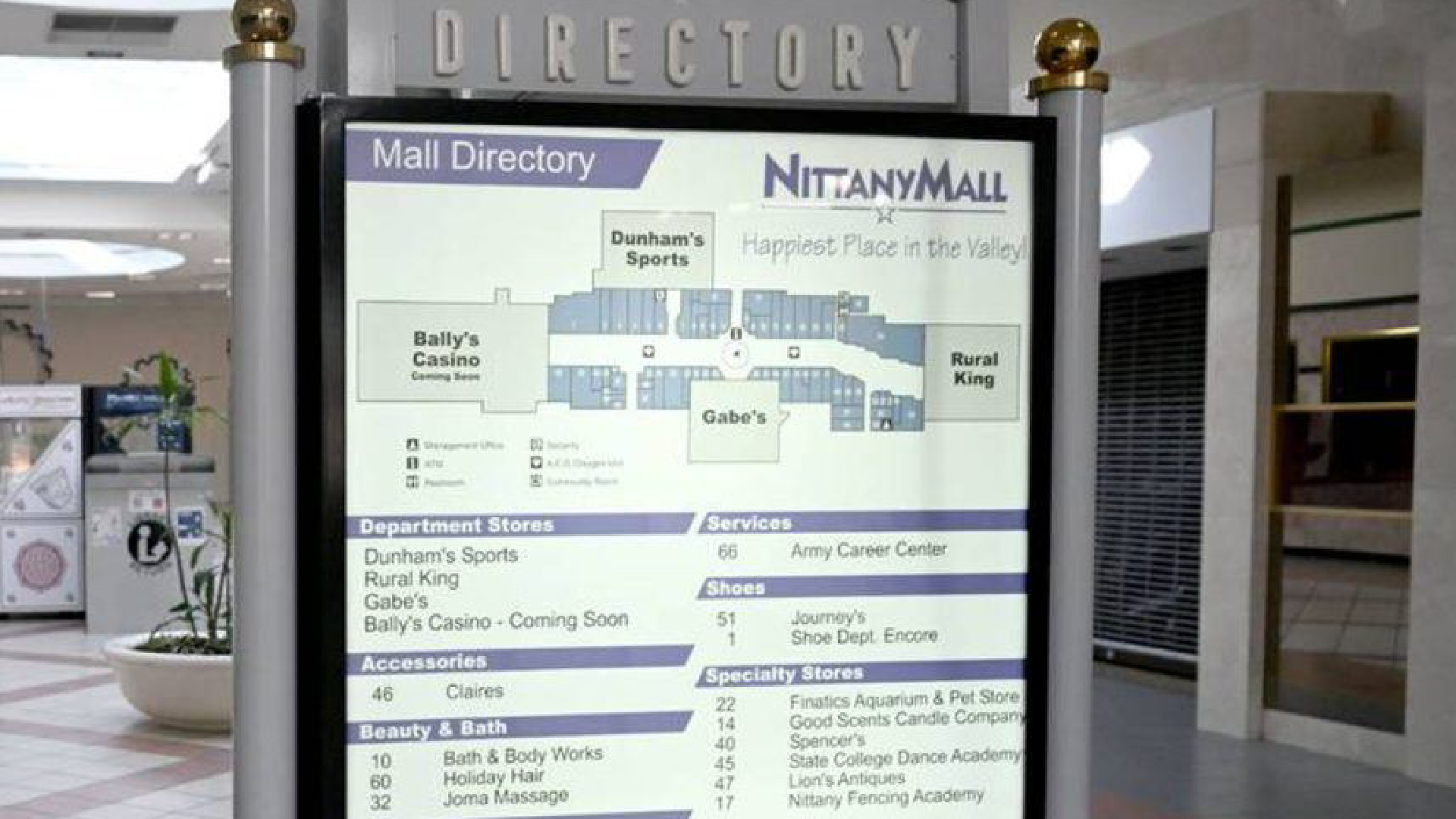Bally’s Casino Plan Near Penn State Campus Wins Critical State Supreme Court Ruling
This week, the Bally's Corporation and its regional development associates in State College, Pa., close to Penn State University, achieved a significant legal win.
Over 10 months after the Pennsylvania Supreme Court decided to review an appeal regarding the Pennsylvania Gaming Control Board’s (PGCB) choice to grant a gaming license for a casino initiative at State College’s Nittany Mall, the state’s highest court determined that the plaintiff’s claims lack substance.
Stadium Casino RE, LLC, the unsuccessful bidder in the PGCB's September 2020 auction for the Category 4 "mini-casino" license, questioned whether winning bidder Ira Lubert breached the application regulations set by the state gaming agency. Category 4 casinos were introduced via a 2017 gaming expansion package, but only existing slot license holders in the state and major investors in the concessions were eligible to bid on the satellite venues.
Lubert, by virtue of his 3% ownership in Rivers Casino Pittsburgh, became eligible for the auction. Stadium Casino, a wholly owned subsidiary of The Cordish Companies, was also doing the same, as it was in the process of building Live! Hotel & Casino Philadelphia.
Challenge Refuted
Stadium lawyers contended that Lubert breached PGCB bidding regulations by forming a partnership with two Pennsylvania businessmen — Robert Poole and Richard Sokolov, who is currently a trustee at Penn State University — prior to placing his $10,000,101 successful bid. Because Poole and Sokolov were unable to qualify for independent bidding, Stadium claimed that Lubert's bid ought to have been rejected.
This week, the Pennsylvania Supreme Court was not in agreement.
"It is undisputed that although the funds were wired from Lubert’s account, he did not pay the entire amount himself, as various individuals and entities contributed funds toward the payment of the winning bid,” the court conceded.
However, Justice Christine Donohue, who penned the court's unanimous ruling and was accompanied by Chief Justice Debra Todd and Justices Kevin Dougherty, David Wecht, Sally Updyke Mundy, Kevin Brobson, and Daniel McCaffery, stated it dismisses “Stadium’s effort to liken financial interests to ownership.”
While Poole, Sokolov, and possibly Bally’s, who aided Lubert in paying the $10 million fee within 48 hours after winning the Sept. 2, 2020, auction, might have been informed they would obtain stake or shares in the upcoming casino, the court decided that Lubert currently holds 100% control of the Cat. 4 permits. To facilitate that change, the PGCB must endorse the new owners following thorough background checks on those persons/entities to ensure they are fit to possess direct ownership in a state gaming license.
Consequently, the state Supreme Court determined that the PGCB adequately evaluated Lubert’s bid or payment, and Lubert's actions were also suitable, or at least within legal boundaries.
Municipality Embraced Casino
Approximately five months later, Lubert, via his company SC Gaming OpCo, made the $10 million payment for the Cat. 4 license, the ex-Penn State trustee declared Bally’s Corp. as the $123 million casino's development ally and upcoming operator.
In early 2021, the development team announced intentions to transform a now-closed Macy’s department store at the Nittany Mall, located a few miles from the Penn State University Main Campus, into a casino featuring up to 750 slot machines and a starting set of 30 table games, along with a sportsbook.
The Pennsylvania Supreme Court ruling paves the way for Lubert and Bally's to start building their mall casino, although no schedule has been announced yet.
A community coalition in State College persists in overwhelming Casino.org’s coverage regarding Bally’s with negative remarks about the company, which is currently experiencing financial difficulties and has recently encountered credit downgrades. Residents of Pennsylvania have shown opposition to a potential casino in their area and have concentrated their anger on Bally's recent operational mistakes.
Nonetheless, the responsibility for the Bally’s Pennsylvania project may be more appropriately placed on the College Township Council, which did not choose to exclude itself from being seen as a Cat. 4 casino in 2017 when the PGCB permitted municipalities to opt out of being selected for a mini-casino. Over 1,000 additional townships opted out of the evaluation.
